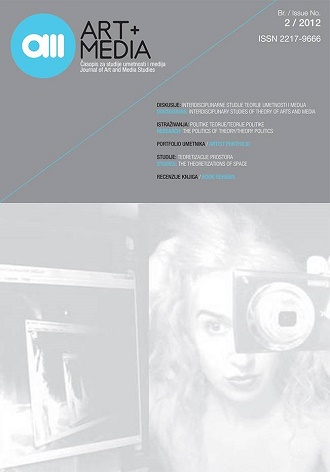Političko nesvesno postmodernističkog filma nostalgije
The Politically Unconscious of the Postmodern Nostalgia Film
Author(s): Rade PantićSubject(s): Fine Arts / Performing Arts
Published by: Fakultet za medije i komunikacije - Univerzitet Singidunum
Keywords: political unconscious; mode of production; postmodernism; nostalgia film; cognitive mapping
Summary/Abstract: In this paper I will engage in the theory of American Marxist Fredric Jameson. To begin with I will give an overview of his Marxistic hermenautics and his concept of political unconscious. According to Jameson, every artistic text contains three levels of political unconscious: textual level, social level and historical level. At all three levels it is possible to detect a certain contradiction. At the first level, this contradiction is a textual and formal one, at the second it is based on a class antagonism, and at the final, third level it witnesses the antagonism between different modes of production. After words, I move on to the Jameson’s critique of postmodernism. Postmodernism has difficulties with a signification of the present mode of production, because late capitalism successfully removed the remains of the other modes of production. Lacking the active engagement with the past, postmodern texts are not able to constitute coherent representation of the present for which Jameson has come up with the term cognitive map. Paradigmatic example of this impossibility of cognitive mapping in postmodernism is nostalgia film. Jameson gives the best explanation of nostalgia film in his analysis of Stanley Kubric’s film The Shining. He concludes that political unconscious of nostalgia film is desire for cognitive mapping in the form of clear class hierarchy that would enable construction of a new collective utopian program.
Journal: AM Časopis za studije umetnosti i medija
- Issue Year: 2012
- Issue No: 02
- Page Range: 57-62
- Page Count: 6
- Language: Serbian

